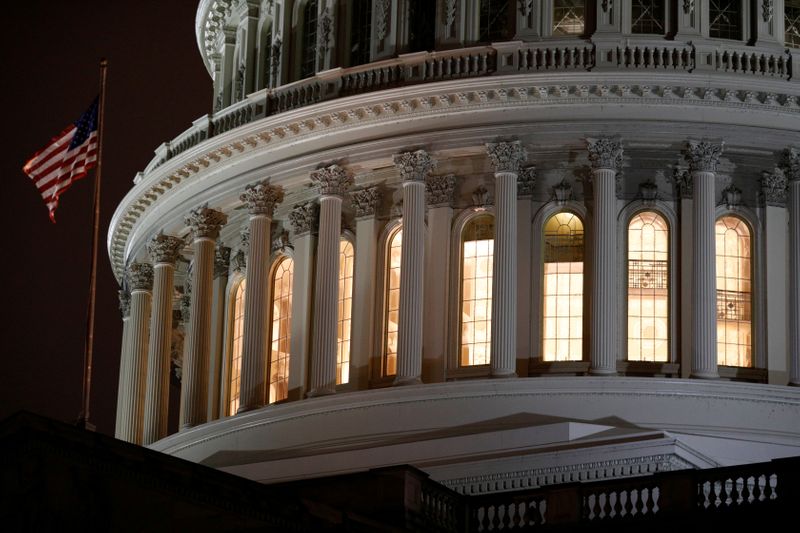By David Morgan and Susan Cornwell
WASHINGTON (Reuters) - Three days after passing a $2.2 trillion package aimed at easing the heavy economic blow of the coronavirus pandemic, the U.S. Congress was looking on Monday at additional steps it might take as the country's death toll approached 3,000.
Democrats who control the House of Representatives were discussing boosting payments to low- and middle-income workers, likely to be among the most vulnerable as companies lay off and furlough millions of workers, as well as eliminating out-of-pocket costs for coronavirus medical treatment.
House Speaker Nancy Pelosi said she would work with Republicans to craft a bill that could also provide added protections for front-line workers and substantially more support for state and local governments to deal with one of the largest public health crises in U.S. history.
More than 160,000 people in the United States have been sickened by the fast-spreading respiratory virus that causes COVID-19. It has prompted widespread closures of schools and businesses across the nation and thrown millions out of work.
Pelosi, the top U.S. Democrat, said she did not expect new legislation to be completed until sometime after Easter, which is on April 12.
"We must do more to help our helpers in this moment of national crisis," she told reporters on a conference call, adding that delays in producing ventilators and medical protective equipment "will cost lives that should not have to be lost."
Republican President Donald Trump's administration signaled that it might seek congressional authorization for more funds for a small-business loan program.
That could open the door to negotiations on additional measures Democrats are seeking. While the Republican-controlled Senate ignored some of the Democrats' ideas when crafting the $2.2 trillion bill enacted last week, Democratic initiatives could gain traction if the coronavirus outbreak worsens in coming weeks.
'PHASE FOUR'
House Minority Leader Kevin McCarthy, a Republican, has said he was not sure if it was necessary to augment the first three packages totaling over $2.3 trillion with a fourth bill. A spokesman was not immediately available for comment on Monday.
But an aide to the House Appropriations Committee, which must provide funding for some of Washington's response to the coronavirus, said the Democratic-led panel was in the early stages of work on "phase four" of response legislation.
Other ideas being floated were the opening of a special enrollment period for the Affordable Care Act, also known as Obamacare, and steps to lower health insurance premiums, as well as financial assistance to help laid-off workers keep temporary health insurance.
Democrats also have spoken of the need to shore up infrastructure for telecommunications, electricity and water systems. The shortcomings, Democrats said, have been underscored by the virus outbreak as students in some regions lack internet capability to take online classes during school closures, for example.
Congress is trying to respond to the crisis even as its normal operations are interrupted, with most lawmakers advised to stay in their home states. The Senate is in recess until April 20 and the House at least until then.
Pelosi was advised by the Congress' attending physician to take no particular action after she was in contact with Representative Nydia Velazquez, who has been diagnosed with the coronavirus infection, according to Pelosi aide Drew Hammill. Pelosi, who just turned 80, is in the age group considered at high risk for the illness.
Hammill said on Monday the contact was deemed to be "low risk.". At least six members of Congress have said that they contracted the novel coronavirus.
